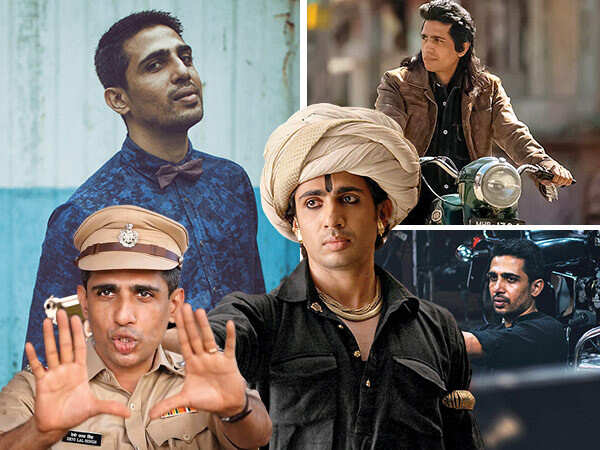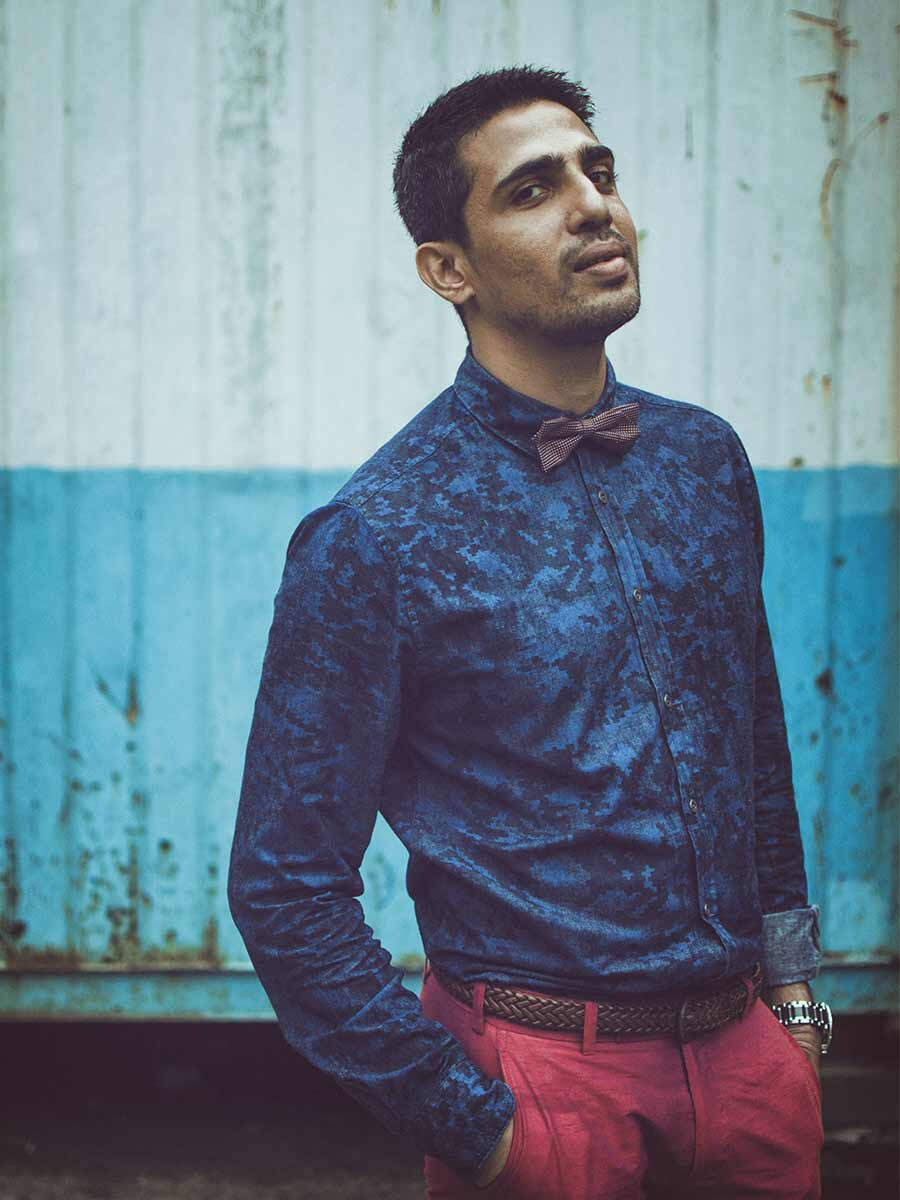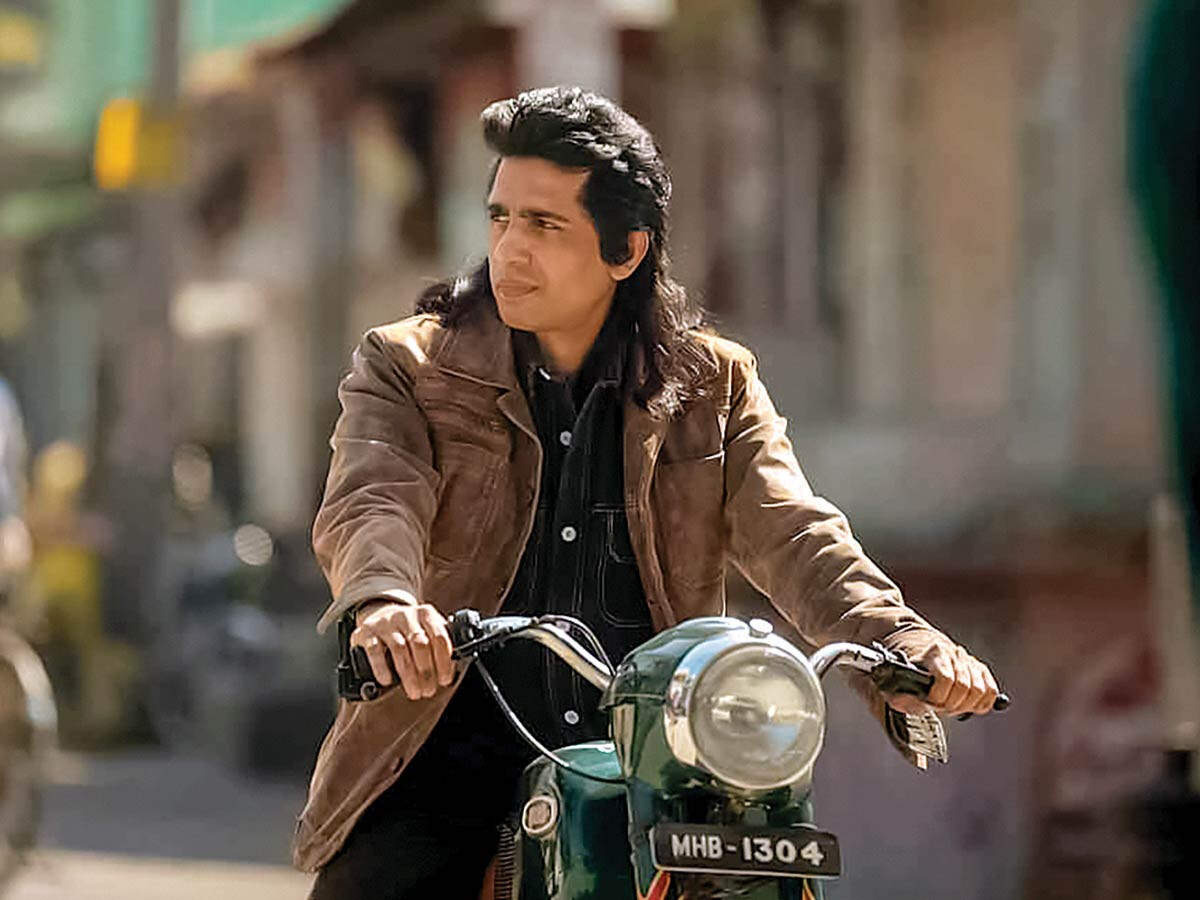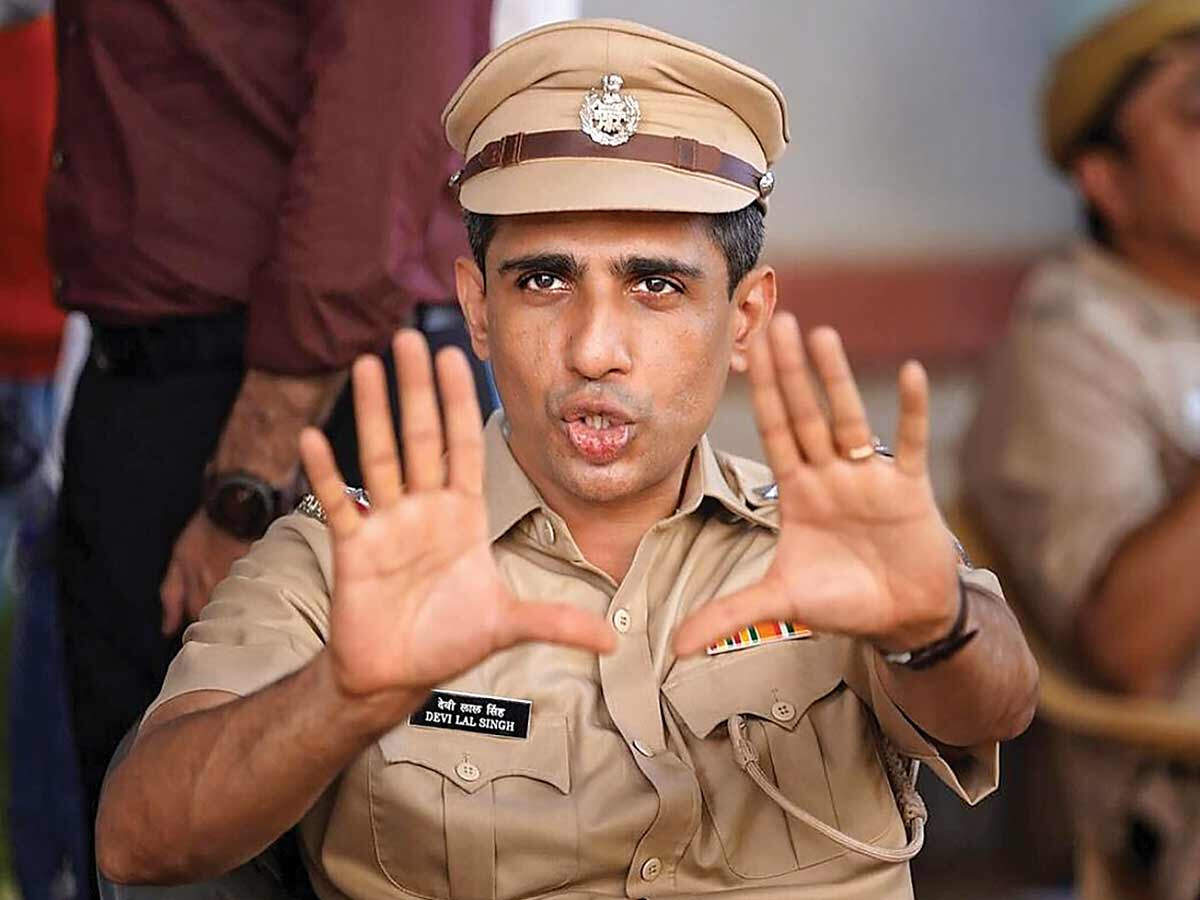
According to the rumours, you seem to be courting your ex-wife Kallirroi Tziafeta again.
We create relationships, but we don’t work on strengthening them. You have to look after that relationship. In order to retain whatever good remains in our relationship, it is important that we separate. Now we are focusing on building our relationship again
Any mistakes in the relationship that you would never want to repeat again...
Many times, I say something that hurts the other person. If I am experiencing some pain, then I unleash it on the other person. Now I am trying not to do so. I could have communicated better after the relationship. I could have remained patient, which I did not. No matter how much patience I had, it was insufficient for my partner. This is a mistake that I will not repeat again.
You began your career with Anurag Kashyap but did not work closely with him. Why is that?
I didn’t work with Anurag Kashyap after Shaitan, but I’m now working on a film with him. He is my senior. He gave me work, so I respect him. When he married my friend Kalki Koechlin, we met frequently. When they both broke up, it impacted my relationship with him as well, because Kalki is a close friend of mine. But now everything is fine. I have been friends with Kalki since 2008. We both share a special bond. Kalki is not superficial. She is relaxed and genuine. We have everything—a difference of opinion, fights, as well as friendship. We don’t talk often, as she is busy with her daughter and her new husband. I met her recently in Goa. She is a bit stressed as her partner is from Israel and things are not going
well in his country.

Nowadays, PRs build an actor’s image. Do you consider this a necessity?
Sometimes, this seems like the right thing to do. I have seen many actors move around in luxury cars but live in 1 BHK. I find this foolish. But later on, I feel that people form a perspective about them based on that. You can call this a PR strategy. People believe he can afford these things, which is why he is successful. Once, Kalki’s driver told me, “Sir, aap bhi badi gaadi le lo apka rate badh jayega.” I do not want a brand image. I am content with how I am. I dislike fake celebrities. Financial security is important, but I do not work on any projects for pay. But I will never deny that money is important. When you are financially secure, you can take risks in life. I have no EMIs to pay because I do not have any loans.
You don’t court the paparazzi either...
I like dressing up fashionably. I style my own clothes. I create my own wardrobe. I am a happy-go-lucky person. I like interacting with people, hearing jokes and having a good talk. I like being real. I don’t like to call photographers wherever I go but I do pose for them and interact with them if I meet them by chance.
What’s your definition of success?
There are several levels to it. Financial security is one measure of success. Being carefree about your expenses is also a sign of success. Maintaining versatility and diversity in your career is also beneficial. I also consider this journey a success. I don’t consider having followers or being kind of successful. You should have a higher goal in life.
14 years in the industry. How do you see your journey?
I am extremely happy and satisfied. I’m an outsider. I’m from Bangalore. I learnt to act by participating in plays during my school and college years. Then I realised that I had something unique to offer to others. That’s when I moved to Mumbai. In 2009, I was fortunate to be cast in That Girl in Yellow Boots. Then I got Dum Maro Dum and Shaitan. Then Vasant Bala took me further ahead. People have struggle stories, but I don’t have any. I found it easy to get to work. I don’t identify with the term struggle. People romanticise their pain and struggles. That’s not the case for me. Struggles are not necessary for development.

You were only offered the grey-shaded or villainous roles but that’s changing now.
Following Shaitaan, I was only offered the role of villain. Harshwardhan Kulkarni was one of the first directors to offer me a role similar to Amol Palekar’s in Hunterr (2015), which was also the lead. I liked this character. Following this, I began to get roles, but I did not receive any increase in money. Whatever I got was enough to cover my bills. When you don’t have financial security, your confidence drops. Ayushmann, Kartik and I made our debuts around the same time. When their careers took off, I was a little jealous. But I also felt satisfied that what I had was not any less.
Which were the other directors who presented you differently?
Raj and DK and Vasan Bala. With them, my equation is very different. To understand my character, I don’t have to converse a lot with them. I know their sensibilities. Their stories are never real; all are fictional. When Raj and DK offered me the role, I refused Guns & Gulaabs, stating that I would not play a villain. Then they claimed I should read it at least once. Then I realised that if I refused to play Aatmaram’s role, I would probably regret it later. That role is a gift to any actor. Raj and DK are very particular about certain details because they have already imagined the entire world of the film they intend to make. Their thoughts are clear; however, we do not have any input.
Has OTT changed the scenario now?
I wanted variety in my roles, which took 13 years to accomplish. Yes, after the pandemic, I received more OTT projects. I played three different characters in the same year: Duranga, Dahaad, and Guns & Gulaabs. OTT has provided many opportunities to writers. There is no box-office pressure here. That is why people feel liberated to tell their own stories.
You have worked with Sanjay Leela Bhansali in Ram Leela; tell me about your equation with him.
People say Sanjay Leela Bhansali has a short temper, but this is not the case. Like other directors, he does not communicate openly with you. People are hesitant to talk to him. But I would share my ideas with him without hesitation. He became fond of me. He’d listen to me. He pays close attention to detail. He takes an entire day to frame a single shot. Perhaps some would find this strange, but when the film is finished, the meticulous detailing stands out. As an actor, he allows you to do whatever you want. However, during editing, he will only retain what he has instructed you to do, not what you have done
on your own.

Vijay Verma wants to do his best. He is passionate about his work. He has it all—success, financial security, and stability—but he still has a strong desire to work. He never feels satisfied with his work. He always wants to do more work.
What do you do in your spare time?
I am interested in history, boxing, and sports. I watched all these on YouTube. I watch the analysis of old matches. I like boxing because in it, two people fight with each other, and that fight ends there. Besides, no matter how good a boxer you are, you will be punched in the face. What you will do after that depends on you—whether you will continue to get punched or get up and overpower the opponent. This is what happens in real life as well.
What more do you want to achieve in life?
I do not know. I am walking down the street, but I am unsure of my destination. I’m on the lookout for new roads and excited to explore them. We must prepare ourselves for the challenges that will arise. If you want to do something different and novel, you must be patient. If you want to go beyond money and fame, you must maintain your patience.

SHOW COMMENTS